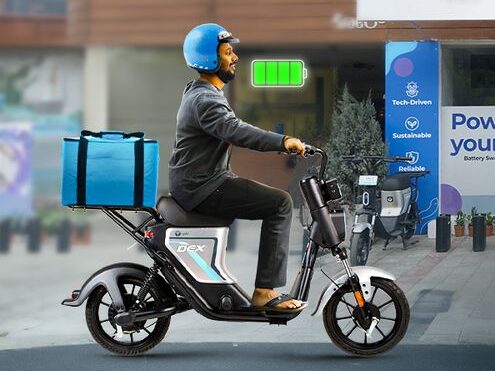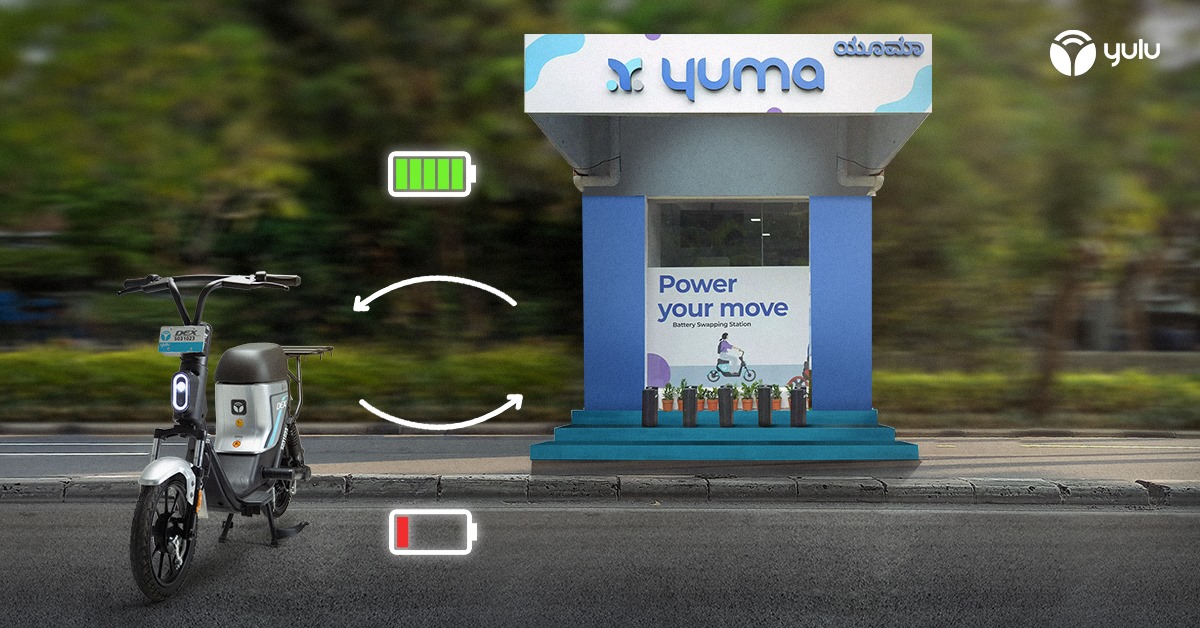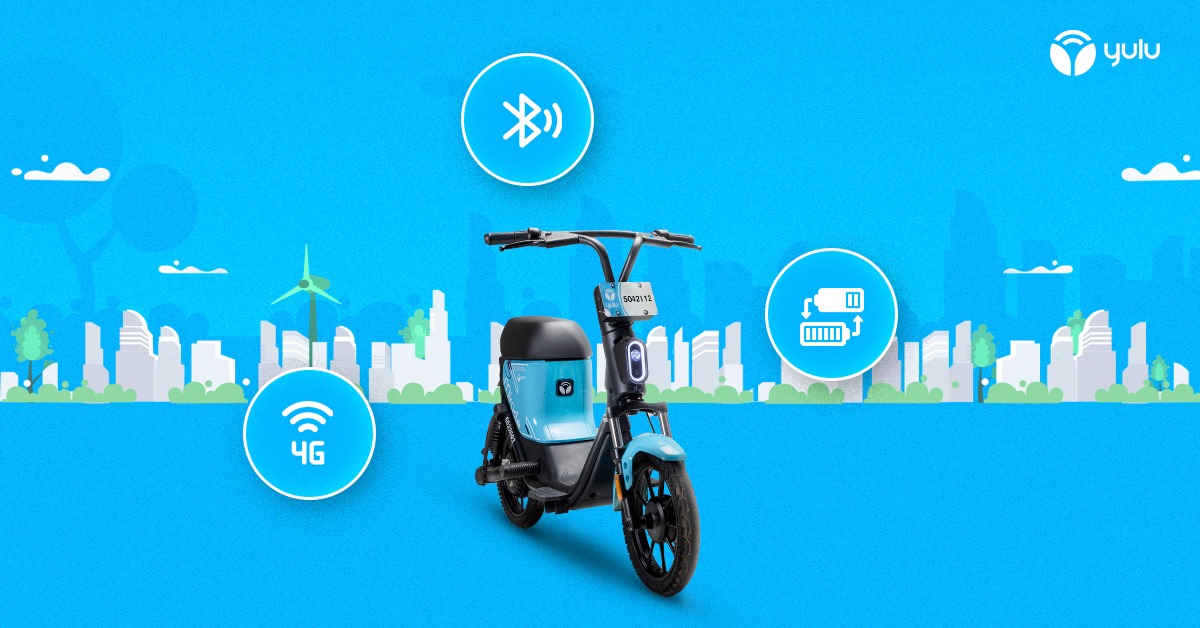Powering Sustainable Mobility: A Deep-Dive into the Evolution of EV Battery Technology
In the transformation towards a sustainable world, one crucial element has emerged as the lynchpin of the electric vehicle (EV) revolution: battery technology. Without continuous innovations in battery technology, the EV landscape as we know it today wouldn’t exist. According to a McKinsey report, the EV battery value chain is projected to grow by up to 10 times between 2020 and 2030 to reach an annual revenue of $410 billion, which shows the critical necessity of batteries in the growing demand for EVs.

This article delves into the dynamic evolution of EV batteries and explores key drivers, that are steering us towards a cleaner, greener, and more sustainable future:
A Glimpse into Battery Tech Evolution
The story of electric vehicle batteries is a tale of innovation, perseverance, and a relentless drive to create a sustainable future. Here is how the battery tech has evolved over time:
- Pioneering Days: Our exploration of battery technology evolution starts with Alessandro Volta, the pioneer behind the first true battery, the Voltaic Pile, developed in 1800. This historic creation marked the origin of contemporary batteries and played a crucial role in propelling electric vehicle development.
- Subsequent Innovations: In the 19th century, Gaston Planté’s work with lead-acid batteries paved the way for practical energy storage, which would later find applications in early electric vehicles. As the 19th century transitioned into the 20th century, the race to develop better batteries continued. Thomas Edison’s work on nickel-iron batteries offered a durable and reliable option for electric vehicles.
- The Lithium-Ion Revolution: Fast forward to the 20th century, and the lithium-ion battery has emerged as the best EV battery technology, due to its higher energy densities compared to lead-acid batteries or nickel-metal hydride batteries. This made it possible to make batteries smaller while retaining their storage capacity. This revolutionised portable electronics and propelled EVs into the mainstream.
- Beyond Lithium: The future of EV battery technology is ablaze with possibilities as researchers explore alternatives such as solid-state batteries and cutting-edge chemistries that promise enhanced energy efficiency and sustainability. Solid-state batteries, for example, offer increased energy density and safety.
Moreover, next-generation chemistries like lithium-sulphur and lithium-air are on the horizon, holding the promise of even lighter and more energy-efficient batteries.
Sustainability at the Core
The pursuit of sustainability has become more than just a buzzword; it’s a global imperative. Here is how sustainability is kept in mind in the realm of battery tech:
- Green Imperative: Battery technology finds itself at the forefront of the sustainability revolution. The emergence of advanced batteries heralds a new era of eco-conscious energy solutions, a response to the urgent global commitment under the Paris Agreement to limit global warming to well below 2 degrees Celsius.
- Emissions Reduction: Electric vehicles (EVs) powered by clean energy sources are pivotal for reducing greenhouse gas emissions. With their rising popularity, EVs are offering a glimmer of hope in our collective battle against climate change, aligning with the emissions reduction goals set forth by various countries across the world.
- Grid Harmony: But the use of batteries doesn’t end with electric cars. They also play a critical role in stabilising power grids. This makes them indispensable for the seamless integration of renewable energy sources.
Innovations Shaping Tomorrow
In our relentless pursuit of innovation and the quest for a more sustainable future, the realm of electric vehicles (EVs) stands as an example of human ingenuity. At the heart of this eco-conscious revolution lies the crucial element of EV batteries.
- Solid-State Marvels: Emerging as a game-changer in EV battery technology, solid-state batteries are set to redefine our perceptions of energy storage. Instead of the liquid or polymer gel electrolytes that constitute the lithium-ion EV batteries today, the solid-state battery uses solid electrodes and a solid electrolyte. With unparalleled safety, increased energy density, and an extended lifespan, they represent a pivotal leap forward in sustainable electric vehicle battery technology.
- Recycling Renaissance: As the world moves towards responsible and sustainable energy consumption, battery recycling innovations have emerged as vital contributors. These advancements not only address the growing issue of e-waste but also maximise resource utilisation, giving batteries a second life and reducing their environmental impact.
Read how Yulu Repurposes EV Batteries For Empowering A Sustainable Future. - Rapid Charging Revolution: One of the common hesitations with EV ownership has been range anxiety. However, ultra-fast charging technologies are on the horizon, poised to transform this landscape. These innovations offer speedy and convenient charging solutions, making EVs more accessible and user-friendly.
Yuma’s Battery Swapping Network
In a world grappling with battery cost concerns, range anxiety, and maintenance challenges, Yulu’s visionary partnership with Magna to launch Yuma Energy, a battery-as-a-service company, unveils a future-ready EV mobility solution. Yuma’s network of 120+ battery-swapping stations across India’s largest metros ensures that riders can effortlessly swap depleted batteries for fully charged ones within minutes.
Cruising Towards a Greener Horizon: The Electrifying Future of EV Batteries
As we navigate the exciting terrain of EV battery technology, it’s clear that Yulu and Yuma, with their innovative battery-swapping network, are key players in revolutionising sustainable urban mobility.
The future of electric vehicles isn’t just about advanced batteries; it’s about making these technologies accessible and efficient for all. Hence, Yulu’s commitment to shared urban mobility and sustainable transportation paves the way for a cleaner, healthier planet.
This article was originally published by Yulu.














